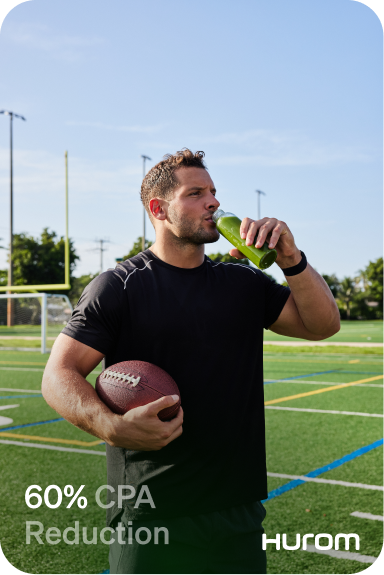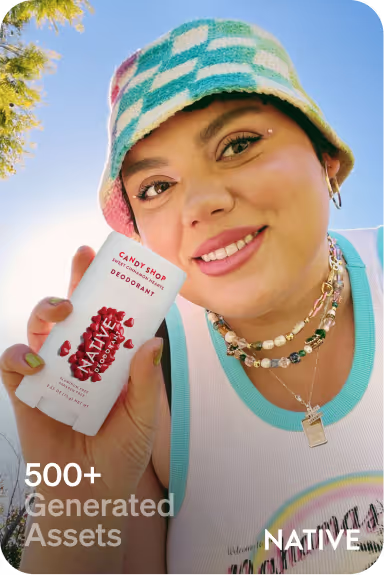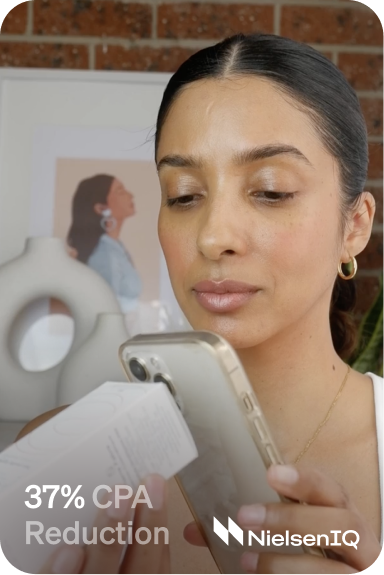Chicago’s healthcare sector is an economic powerhouse in its own right. The city is home to more than 26,000 healthcare-related companies and employs over 600,000 professionals. The industry contributes 12.2% of Chicago’s gross regional product (roughly $69.7 billion in health-service output).
Chicago also ranks among the top U.S. hubs for biomedical research and healthtech innovation. In 2024-2025, Northwestern University’s Feinberg School of Medicine received $435 million in research funding from the National Institutes of Health (NIH), making it one of the top federally funded medical schools in the U.S. The University of Chicago, on the other hand, continues to attract major federal and private grants in genomics and clinical AI.
The intersection of academic medicine, private practice, and digital-first health startups makes Chicago one of the most vibrant hubs for health marketing in the country.
For healthcare providers and marketing agencies seeking success, it’s about striking a balance between regulatory accuracy and technological adaptability. Also, you must connect with patients through a brand voice that feels both genuine and trustworthy.
This guide breaks it all down. Learn how top Chicago healthcare marketing agencies are tapping into AI, predictive analytics, and smart, compliant marketing tactics to drive real results, even in a tightly regulated space.
TL;DR
- Chicago’s healthcare ecosystem spans hospitals, clinics, and healthtech startups.
- Leading firms use AI tools and predictive analytics to refine targeting and improve patient conversion.
- Trust starts with first-party data and a transparent, compliant brand voice that aligns with HIPAA and FTC standards.
- Voice search and local SEO optimization are essential to boost discoverability, local and online visibility, and appointment bookings.
- Metrics like CAC, LTV, and retention rates must be built into every multichannel campaign from day one.
To gain credibility fast, partner with Chicago’s medical community. Agencies that co-market with academic hospitals earn local trust and referral traffic faster than any ad spend can buy.
Overview of Chicago Health Marketing
Chicago’s medical industry is a mix of big names and bold ideas. You’ve got world-class hospitals, cutting-edge research centers, and a fast-growing wave of healthtech and biotech startups, all coexisting in one of the most competitive medical markets in the country.
For local marketing agencies, that means bringing together innovation, community care, and data-driven strategy to stand out and connect with patients in meaningful ways.
Local Patient Behavior: Urban vs. Suburban Dynamics
Marketing healthcare in Chicago isn’t just about targeting the right audience. It’s about knowing the community.
Each neighborhood, suburb, and zip code brings its own needs, habits, and health priorities.
For instance, in Cook County, many patients rely on Medicaid or Medicare. With nearly 3 million Illinois residents enrolled in Medicaid, campaigns that focus on accessibility, affordability, and clinician trust tend to resonate best.
In the suburbs, places like Evanston or Naperville, you may find patients looking for personalized care. They respond well to personalized content strategies and lifestyle storytelling (e.g., wellness, preventative care, high-end amenities).
On the South and West Sides, multilingual messaging and community-based outreach are key. Initiatives like church-based health screenings or local events align with public health programs, such as Healthy Chicago, and help build trust where it matters most.
Meanwhile, tech adoption in healthcare is rising rapidly, with more than 19 million Americans already using voice assistants for healthcare information. This means that optimizing for voice search and conversational queries (such as “Chicago cardiologist near me”) needs to be part of any effective digital marketing plan.
How Chicago Differs from National Healthcare Marketing
While national campaigns focus on big-picture branding, Chicago’s healthcare marketing is all about local trust. The most successful agencies know how to speak the city’s language. That could mean referencing familiar neighborhoods, calling out landmarks, or even incorporating the transit system to make campaigns feel grounded and relatable.
But it’s not just about knowing the map.
In a city with strict privacy laws and strong public health goals, marketers walk a fine line between creative storytelling and compliance. Chicago’s health programs push hard for preventive care and equity, so campaigns need to feel not only relevant but also responsible.
The agencies that get it right? They’re using AI tools and first-party data to craft personalized campaigns that respect HIPAA and connect with local communities on a deeper level.
Read our guide on Social Media Marketing for Health Brands.
Why Localized Expertise Is Essential
In healthcare marketing, local insight can beat even the biggest media spend, especially in cities like Chicago.
Take the West Side, for example. One program teamed up with churches in the area to offer health screenings for over 1,100 adults, checking things like blood pressure and cholesterol.
These kinds of community-led efforts aren’t just feel-good stories. They work. Broader public health studies show that multilevel interventions delivered through congregations can lead to real (if modest) drops in blood pressure. It’s a clear sign that culturally grounded, neighborhood-based outreach can actually move the needle on health outcomes.
On the digital side, segmentation and personalization are just as crucial. In one example, Deloitte used cognitive insights to tailor healthcare email campaigns and ended up cutting opt-out rates by 50%.
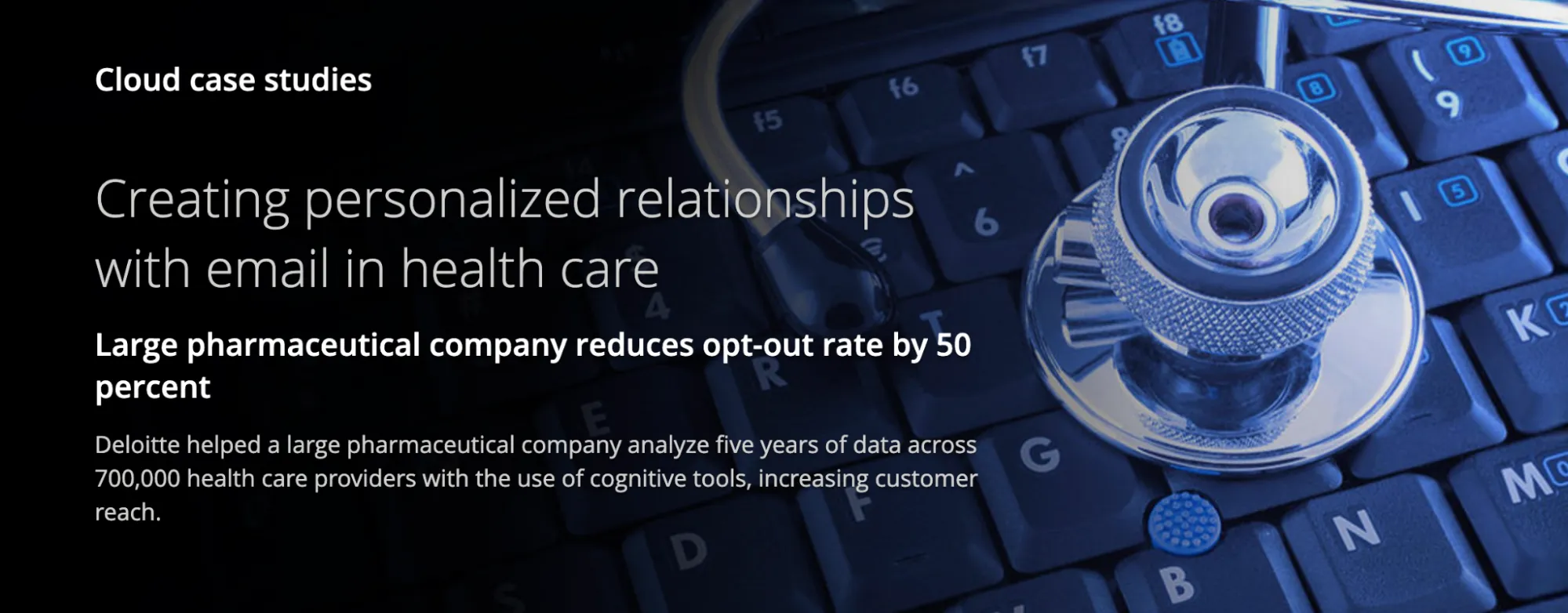
Insider Tip: In Chicago, authenticity isn’t optional. Creative that nods to local events, such as a marathon route, a Wrigleyville crowd, or a South Side wellness fair, tends to outperform generic stock imagery every time. Local love gets the clicks.
What to Look for in a Chicago Healthcare Marketing Agency
If you want to run successful campaigns for your healthcare business in the Chicago metropolitan area, you need the big guns. A marketing agency in Chicago that has local insights, expertise in healthcare, and a penchant for innovation will win every time.
In a city where privacy rules are tight, compliance matters, and local trust is everything, top agencies share three defining traits: innovation, market fluency, and ethics. Let’s take a look at them.
Innovative Strategies That Drive Growth
Leading Chicago healthcare marketing agencies are leaning into AI, predictive analytics, and data-driven strategies to better segment audiences and forecast outcomes.
Besides technology, selecting the most impactful and relevant marketing channels is also incredibly important.
In healthcare, numbers are helpful, but hearing from other patients can be just as effective. This is where a user-generated content (UGC) strategy tapping stories and experiences from local Chicago patients can make a big difference. Those stories can be featured on the website, publications, and even as creatives for paid media.
That’s something inBeat did for Mindbloom to show real results from real people.
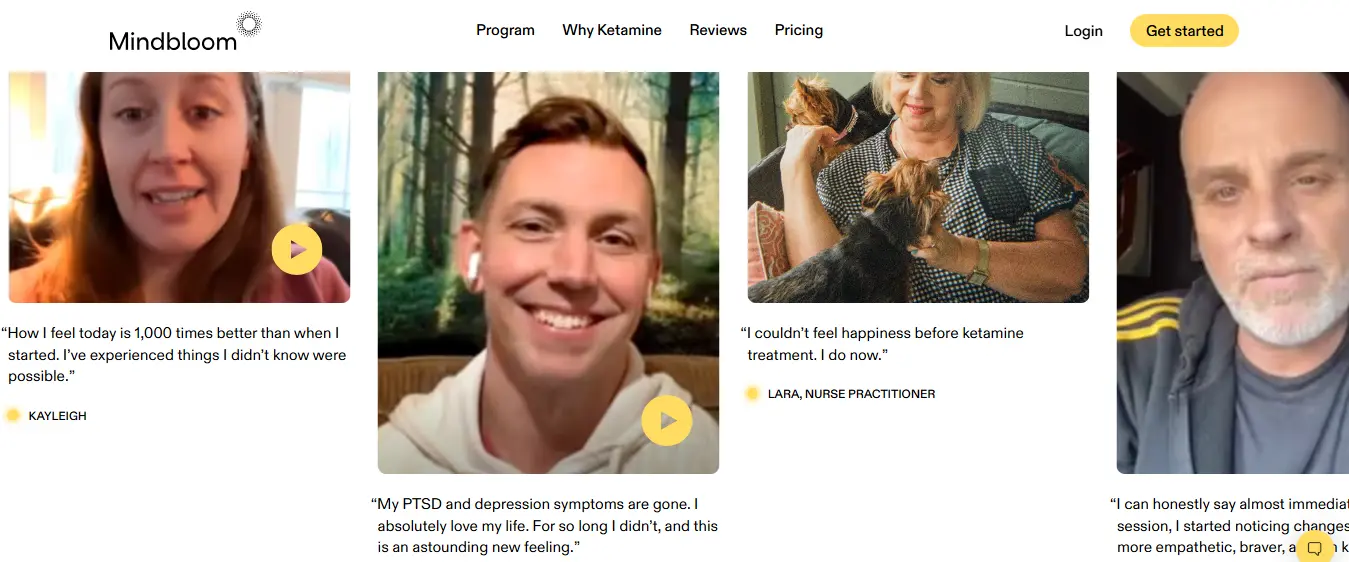
Expertise in Healthcare Market Dynamics
Chicago’s healthcare, much like other big cities’, isn’t one-size-fits-all. It’s a patchwork of private clinics, major hospital systems, community providers, and fast-growing healthtech startups, all overlapping across neighborhoods and patient populations.
That fragmentation brings real challenges. Decision cycles can be long, especially in specialty care or chronic disease management.
Privacy regulations like HIPAA, plus evolving state laws, add another layer of complexity. Even the message itself needs to shift depending on the neighborhood. What works in River North might not resonate in Little Village or Hyde Park.
The smartest campaigns start with research.
That means going beyond surface-level demographics to build real patient personas, tracing how people move through referral networks, and understanding who’s involved at each step of the care journey.
Building Consumer Trust through Ethical Practices
In healthcare marketing, trust is everything. In Chicago, the most successful agencies build it through a mix of compliance, transparency, and empathy. They create content that informs without overpromising, like educational blogs, clinician-led videos, and verified patient stories.
Every message needs to follow HIPAA and FTC guidelines, so agencies must ensure:
- Health claims are backed by credible evidence.
- Testimonials come with clear disclaimers.
- And any patient data used in campaigns is backed by valid consent.
The 2024 Edelman Trust Barometer shows that 83% of people trust their doctors most when it comes to accurate health info. That kind of credibility isn’t just helpful. It’s what drives real engagement.
Digital Tools and Tactics for Healthcare Marketing in Chicago
In a city as competitive as Chicago, simply spending more on ads won’t get the job done. You need a well-connected digital toolkit where creative, analytics, and compliance all work together to turn casual browsers into booked patients.
Again, this is where a healthcare marketing agency comes in, with their tech stack ready.
A good marketing or advertising agency will combine AI, automation, and analytics to increase engagement, reduce acquisition costs, and enhance patient experience.
Here’s what works based on our own experience in this sector.
Video Content Creation for Engagement
Videos have become the heartbeat of healthcare marketing, and for good reason. With 83% of U.S. adults using YouTube, it’s the go-to platform for people looking to learn, research, and connect with trustworthy health info.
Healthcare brands are catching on: 88% of healthcare and pharma advertisers plan to increase their spend on digital video and social media advertising in 2025. That says a lot about how powerful video has become for building real, human connections with patients.
But creating great healthcare video content means thinking about how people actually watch.
Since 85% of Facebook videos are watched without sound, the best campaigns are designed for both sound-on and sound-off. That means using captions, strong visuals, and clear calls to action to keep people engaged, whether they’re watching with headphones or on mute at the doctor’s office.
But it’s not just about views. It’s about impact. Metrics like watch time, click-through rates, and even appointment conversions give a clear line from video engagement to real results.

Search Engine Marketing for Organic Discovery
Search engines are where the patient journey begins. A 2025 study found that one-third of adults look up health info online before visiting a medical provider.
That trend continues throughout the decision-making process:
- 44% of U.S. healthcare consumers research providers online before booking an appointment.
- 84% of patients check online reviews first, using search engines or even voice assistants to weigh their local options.
In a market like Chicago, that means your SEO and PPC efforts need to do more than just show up. They need to earn patient trust.
Winning campaigns focus on “near me” searches like “Chicago allergist near me” or “telehealth mental health Chicago.” They also use smart tools like schema markup, conversational AI-driven content (verified), and Google’s E-E-A-T principles to prove your practice is both visible and credible.
On the paid side, Google Ads and Meta campaigns must stay HIPAA-compliant by using anonymized first-party data to sharpen targeting without risking privacy. The best-performing ad copy avoids making restricted claims and instead focuses on what matters most to patients: expertise, access to care, and real results.
And when patients don’t book right away? Retargeting across search and social keeps your brand top of mind. This helps turn initial interest into scheduled appointments, all while staying fully compliant and building long-term trust.
Targeted Email Campaigns for Retention
In healthcare, email plays a big role in keeping patients connected after their visit. The most effective lifecycle campaigns include:
- Appointment reminders
- Wellness newsletters
- Reactivation emails
- Cross-sell nudges (like annual screenings or telehealth check-ins)
These emails really shine when they’re personalized using first-party data, like patient demographics, care history, or the services they’ve used before. And of course, it all needs to be handled through HIPAA-compliant tools like Salesforce Health Cloud or HubSpot for Healthcare.
With the right segmentation and a solid tech setup, email can become one of your most effective tools for keeping patients engaged and bringing them back when it matters.
Target Chicago's Patient Demographic
In a city as diverse as Chicago, precision is everything. The best campaigns don’t stop at broad stats like age, income, or insurance. They dig deeper, using neighborhood-level insights like access to care, language preferences, and the social realities that shape health decisions.
Research shows that patients living in high-poverty or high-crime areas are more likely to miss appointments. This proves how much geography impacts engagement.
That’s where localized creative makes a real difference. In neighborhoods like Pilsen and Little Village, things like bilingual messaging, community outreach, and social proof go a long way in building trust and boosting participation.
Analytics for Granular Insights
Behind every high-performing healthcare campaign in Chicago is a solid data foundation. Top agencies pull together insights from Google Analytics 4 (GA4), CRM systems, and ad platforms into one clear, actionable dashboard.
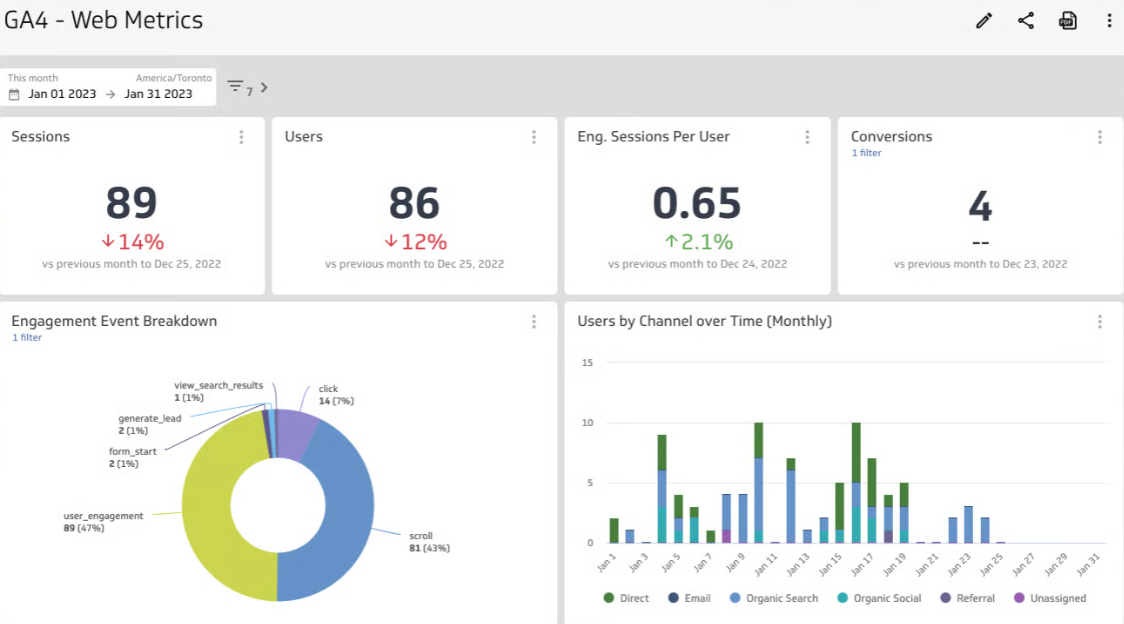
The key metrics they track include:
- CAC (Cost per Acquisition)
- Conversion Rate (from visitor to booked appointment)
- Patient Retention & Reactivation Rates
- LTV:CAC Ratio (with a goal of 3:1 or better)
- Attribution Paths (first-click, last-click, and everything in between)
Using predictive analytics and AI-powered tools can help agencies forecast patient behavior and adjust ad spend in real time.
One big differentiator? Data quality. The best agencies prioritize clean, privacy-first data, utilizing encryption, consent-based tracking, and regular audits to maintain HIPAA compliance.
Compliance in Healthcare Marketing
For healthcare facilities and the marketing agencies powering their campaigns, compliance is an absolute must. It’s the foundation everything’s built on. Between HIPAA, state privacy laws, and FTC ad guidelines, there’s not much room for error. The agencies that succeed are the ones that stay legally airtight and deliver smart, measurable, ROI-focused campaigns.
Importance of Non-Restrictive Arrangements
Top-performing healthcare marketing agencies don’t just follow compliance. They bake it into the DNA of every campaign. One key approach is to use non-restrictive arrangements: compliance frameworks that protect patient data without stifling creativity.
Here’s how that works in real life:
- Signing Business Associate Agreements (BAAs) to clearly define how data is handled, encrypted, and used under HIPAA.
- Running routine security audits and enforcing “minimum necessary access” to PHI.
- Using modular systems that let teams tweak campaigns without ever exposing patient identifiers.
A lot of agencies in Chicago use de-identified, aggregated data through CRMs like Salesforce Health Cloud or Zoho for Healthcare. It limits direct access to PHI, but still supports strong audience targeting and predictive analytics.
Too restrictive? That’s a problem too. Agencies stuck with rigid, read-only dashboards may struggle to adjust their targeting in real-time. This leads to slower pivots, missed opportunities, and underperforming campaigns.
Adapting to Industry Changes
Compliance rules can change fast, especially with AI and telehealth growing. Great agencies stay proactive.
Here’s what they’re keeping an eye on in Chicago:
- Telehealth Expansion: Under the Illinois Telehealth Act, marketers must ensure encrypted communication and explicit digital consent for all platforms.
- AI + Data Privacy: AI platforms are under the microscope. Even predictive models must follow HIPAA’s “minimum necessary use” rule, and agencies must show how AI handles patient info.
- Behavioral Health Oversight: In 2025, Illinois passed the WOPR Act, which limits how AI can support mental health care. Startups using AI chatbots or risk-scoring tools must show compliance.
- Digital Consent Requirements: Agencies must now include clear, auditable consent on all data collection forms and portals. Some states require more than HIPAA does, especially in behavioral health and telemedicine.
What the Best Agencies Do Differently
Simple: They don’t wait for a crisis, they future-proof your campaigns. That means:
- Running regular compliance audits (quarterly or before launch)
- Using dynamic consent management tools inside CRMs
- Doing black box testing to stress-test what happens if a patient revokes consent or a regulator comes knocking
Post-Engagement Analytics in Healthcare Marketing: Why It Matters
In a competitive healthcare market like Chicago, a campaign's real impact appears after it runs. That’s where post-engagement analytics come in. It gives top agencies the clarity to link marketing spend to what truly matters: more appointments, happier patients, and higher lifetime value (LTV).
The smartest teams pull in data from across the journey into one unified dashboard, including Google Ads, social video, landing pages, CRMs, and call tracking. That lets them see how someone who clicked a testimonial post or watched a video ad eventually booked an appointment.
With integrations with tools like GA4 and HIPAA-compliant CRMs, every step is measurable while keeping patient data secure.
Layer on predictive analytics, and you’ve got a roadmap–who’s likely to convert, when engagement might drop, and where ad fatigue is creeping in.
What Metrics Really Matter
Top agencies know it’s not about vanity metrics. It’s about real impact. They track:
- Cost per Acquisition (CPA) and LTV to measure return on ad spend
- Conversion rates from click to lead to appointment
- Retention and reactivation rates to support ongoing care
- Organic traffic growth from SEO services and voice search
- Review sentiment to monitor trust and brand health
Tools like marketing mix modeling or multi-touch attribution help tie creative campaigns directly to patient growth. In this way, leaders know exactly what’s working (and what’s not).
Build Your Growth Strategy with Chicago’s Healthcare Experts
Chicago is where medical excellence meets digital innovation. And healthcare digital marketing isn’t just about promotion. It’s a strategic engine for patient growth. Winning here means getting three things right: data-driven strategy, regulatory compliance, and local expertise.
With inBeat Agency, you get all three.
As one of Chicago’s top digital marketing agencies, we combine AI-powered creative, predictive analytics, and first-party data to craft campaigns that get noticed, build trust, and drive measurable outcomes.
Whether it’s optimizing for voice search or refining ad performance with smart tools, the goal is the same: create marketing that’s clinically responsible, locally relevant, and built for real impact.
inBeat specializes in hyper-targeted influencer and performance marketing strategies tailored to healthcare brands. Our local expertise, combined with cutting-edge data and creative execution, makes us the ideal partner for growth in Chicago’s complex market.
Ready to make a difference? Contact us.
FAQ
What makes healthcare marketing unique in Chicago?
Chicago’s market combines world-class hospitals, grassroots community health initiatives, and cutting-edge healthtech startups. Local agencies understand the city’s diverse patient base, compliance nuances, and how to activate first-party data for hyper-targeted campaigns that resonate from the Loop to Lakeview.
How do agencies maintain HIPAA compliance?
Leading marketing agencies follow strict privacy laws and security checks. They use HIPAA-compliant CRMs, encrypt analytics dashboards, and vet AI tools. They conduct regular audits and limit access to sensitive data through modular frameworks, ensuring protection without slowing creative execution.
What’s the ROI timeline for healthcare marketing?
Most agencies see measurable results within the first 90 days, with sustainable ROI building over 6-12 months. Integrated campaigns combining SEO, Google Ads, retargeting ads, and video ads consistently improve patient acquisition and retention rates while keeping CAC under control.





.svg)
.svg)
.svg)
.svg)


.svg)







